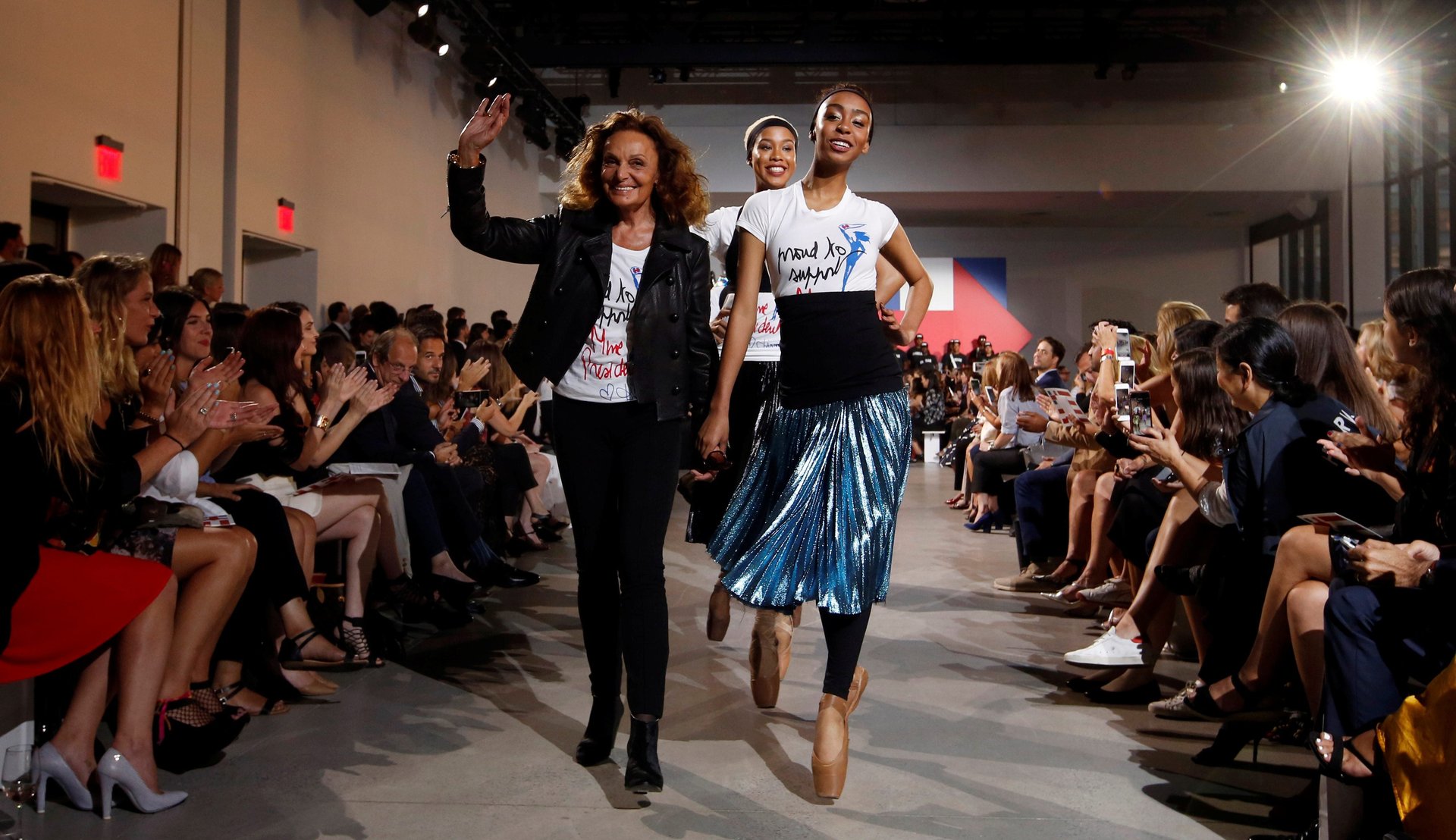New York fashion has joined tech to demand more H-1B visas
The fashion industry represents a huge chunk of New York City’s economy. It generates about $11 billion in wages and employs roughly 6% of the city’s workforce. More than 900 fashion companies have their headquarters in New York. Culturally, the city is the epicenter of US fashion, and one of the top fashion capitals in the world.


The fashion industry represents a huge chunk of New York City’s economy. It generates about $11 billion in wages and employs roughly 6% of the city’s workforce. More than 900 fashion companies have their headquarters in New York. Culturally, the city is the epicenter of US fashion, and one of the top fashion capitals in the world.
New York’s fashion industry is also heavily reliant on immigrants, from top designers in the business and their creative staffs to the workers doing the sewing in garment factories. Immigrants, says the industry’s premier trade group, the Council of Fashion Designers of America (CFDA), are vital to US fashion being innovative and competitive globally, and comprehensive immigration reform is essential to US fashion remaining the economic and cultural force it is.
If the line of argument is familiar, it may be because it’s the same advocated by much of the US tech industry, which also depends on many foreign-born workers and entrepreneurs. In fact, the CFDA has now joined forces with FWD.us, an organization founded by a number of high-profile tech insiders, such as Facebook’s Mark Zuckerberg, that has been pushing for immigration reform.
In particular, the groups want policies that would make it easier for high-skilled immigrants to get visas—such as the important H-1B, which allows them to work in the US for up to six years—and a pathway to citizenship for the industry’s masses of undocumented low-skilled workers. Those demands, however, are running directly up against US president Donald Trump and other Republicans who are working to dismantle the current H-1B program. The potential replacement immigration plans being floated are likely to tighten the number of visas granted, limit foreign students and workers from entering the US, and remove undocumented workers—a set of outcomes unwelcome to many in fashion.
In a press conference in New York today (April 10), designer and CFDA chairwoman Diane von Furstenberg (an immigrant herself), CFDA president Steven Kolb, FWD.us president Todd Schulte, and New York congresswoman Carolyn Maloney shared a report on the potential impact on fashion of changes to US immigration policy. It estimated that 20% of workers in US clothing manufacture are undocumented. It also included a survey of more than 100 fashion professionals, and found the main priority when it came to immigration reform is policy that would make it easier for them to access and retain talent.
New York is one of the world’s top destinations for fashion hopefuls. The industry draws immigrants from overseas, while its two well-respected fashion schools, Parsons School of Design and the Fashion Institute of Technology, attract numerous foreign students who often stay in New York for their careers after graduating. Nearly half of those surveyed in the report said they employ qualified immigrants for design and atelier work, most commonly on H-1B visas.
But getting the visas is often difficult and expensive, frequently costing between $5,000 and $10,000 in legal expenses, and sometimes more. (Employers, not workers, are the ones who must apply for the H-1B.) Maloney said when visas are difficult to obtain for graduating students, we’re essentially educating them and sending them off to build their businesses elsewhere.
Critics argue the H-1B visa program allows companies to hire foreign-born workers and pay them lower salaries than their US-born counterparts would receive, and investigations have found cases of the practice. Breitbart has even alleged that the CFDA’s members engage in it.
Schulte said he doesn’t think the problem is common in fashion. “But in those other sectors you hear about, where those have bad actors, let’s crack down on those people,” he added. “That’s going to help bring up wages and create jobs for everybody.”